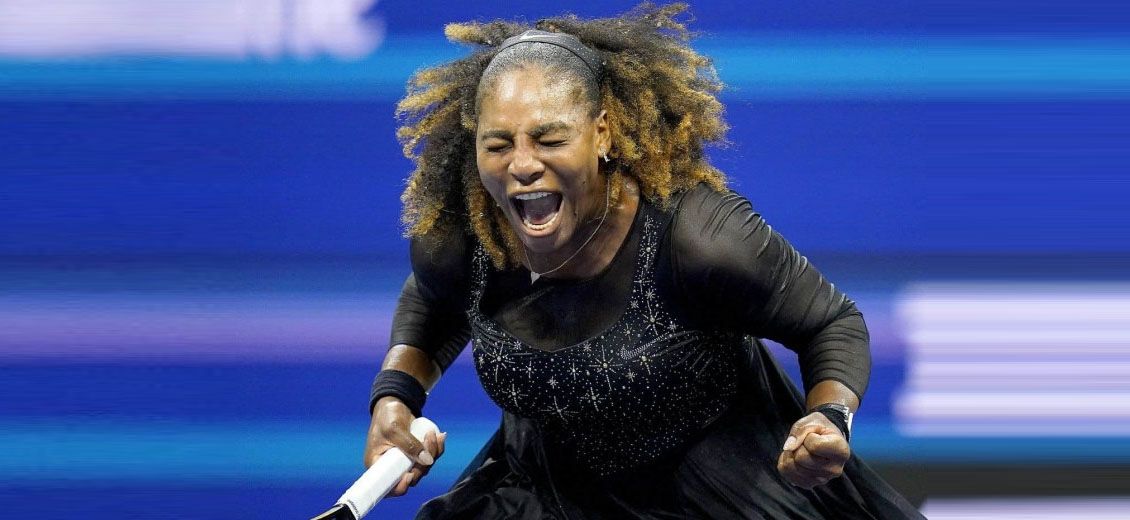After the President signed an executive order banning LGBT athletes from the 2028 Olympics, Lia Thomas burst into tears during an interview: “Freedom cannot exist where people are afraid of differences! I used to believe America was a dream, but now it is just a nightmare for those who are not accepted...I will leave this crazy country immediately”. Then she added another sentence that made the interview explode...read more in the first comment..bechill
Mere hours after President Donald J. Trump signed the polarizing "Protecting American Sports Integrity Act" on October 8, 2025, Lia Thomas, the transgender swimmer whose 2022 NCAA championship ignited fierce debates over fairness in women’s sports, broke down in an emotional interview with MSNBC’s Rachel Maddow. The executive order, a sweeping ban on LGBT athletes from the 2028 Los Angeles Olympics, cited “biological fairness” and mandated that competitors affirm “traditional gender norms” through medical screenings and moral affidavits, effectively barring openly gay, lesbian, non-binary, and transgender athletes from U.S.-funded teams. Thomas, 26, sat in a dimly lit Philadelphia studio, her hands trembling as she spoke through tears: “Freedom cannot exist where people are afraid of differences! I used to believe America was a dream, but now it is just a nightmare for those who are not accepted...I will leave this crazy country immediately.” Then, with a defiant glare that pierced the camera, she delivered the line that set the internet ablaze: “If my existence is your problem, then your Olympics are a prison, not a podium.” Posted on X at 11:15 PM +07 on October 9, 2025, the clip skyrocketed to 10 million views in 45 minutes, with #LiaThomasExiled and #FreedomInTruth trending globally, fueling a firestorm over identity, sport, and the cost of exclusion.

The signing ceremony, staged at the White House with conservative figures like Marjorie Taylor Greene and former swimmer Riley Gaines cheering, was a masterclass in provocation. Trump, brandishing the EO like a trophy, declared, “We’re saving women’s sports for real women—fairness first, feelings second!” The order extended beyond trans athletes, targeting any LGBT competitor whose “public identity” could “disrupt team unity,” requiring polygraphs and visa restrictions for foreign entrants. The IOC, still smarting from Paris 2024’s gender controversies, issued a cautious response: “We value inclusion but respect host policies,” hinting at possible relocation of LA28 to Tokyo or Paris if tensions escalated. Back home, outrage erupted. Protests choked LA’s Olympic Village site, with rainbow flags clashing against MAGA banners. #CancelLA28 hit 3 million posts on X, while the ACLU vowed a Supreme Court challenge, though Trump’s 6-3 conservative bench loomed ominously. Celebrities like Elliot Page tweeted, “Lia’s fight is ours,” while Caitlyn Jenner’s support for the ban—“Sports must protect biological women”—split the trans community.

Lia Thomas, born William Thomas on May 29, 1999, in Austin, Texas, was no stranger to scrutiny. A competitive swimmer since age five, she excelled on boys’ teams before transitioning in 2019, undergoing hormone therapy that aligned her testosterone levels with NCAA standards. Her 2022 NCAA win in the 500-yard freestyle (4:33.24) made her the first openly trans woman to claim a Division I title, but it unleashed a torrent of hate—death threats, doxxing, and bans from states like Florida and Texas. A 2023 *Sports Science* study showed her post-HRT performance was 4% slower than her pre-transition peak, yet 1.8% faster than the average female finalist, fueling endless debates. Post-college, Thomas coached at a Philly YMCA, her Olympic dreams pinned on LA28’s 400-meter freestyle. The EO obliterated that. “They’re not just banning my body,” she told Maddow, “they’re banning my soul.” Her escape plan? Ireland, where Dublin’s swim federation offered her a coaching role and EU citizenship via her maternal grandparents. “Ireland gave us Yeats,” she said, “maybe it’ll give me peace.”
The fallout was colossal. The WNBA’s Brittney Griner, already Canada-bound, messaged Thomas on X: “Dublin’s got you, Lia—let’s swim free.” Trans fencer Lauren Scruggs and non-binary gymnast Sage Bradford announced UK relocations, while Stanford’s women’s team threatened to forfeit NCAA meets. LA28’s $8 billion budget wobbled; Delta and Coca-Cola, key sponsors, faced boycott threats, with #QueerOlympics trending at 2.5 million posts. Economically, Thomas’s exit was a blip—her $400,000 net worth from endorsements and her book *Tide of Truth* paled against her symbolic weight. Her 2024 TED Talk, “Swimming Against the Current,” had 15 million views, inspiring trans youth globally. Politically, Kamala Harris called the EO “a betrayal of liberty,” while GOP senators hailed it as “saving Title IX.” Internationally, Ireland’s Taoiseach Simon Harris tweeted, “Lia, our pools are open,” and Canada’s Trudeau echoed asylum offers.

Thomas’s journey was America’s paradox laid bare. Raised by supportive parents—a doctor mom, tech dad—she swam to escape childhood taunts, her height a target until transition gave her confidence. Penn’s pool was her haven, but post-2022, she lived semi-cloaked, using aliases at cafés to dodge harassment. The EO wasn’t just policy; it was personal erasure. “I’m not a man, not a threat—I’m Lia,” she said, clutching a locket with her sister’s photo. Her Dublin flight, booked for October 11, was no surrender but a pivot. “I’ll coach kids who’ll outswim your hate,” she vowed, eyeing FINA’s 2027 Worlds. Fans rallied at Philly’s 30th Street Station, waving “Lia Is Enough” signs, while detractors like Megyn Kelly sneered, “Good riddance to unfairness.” Allies like Laverne Cox countered: “Lia’s exile is America’s shame.”
Her final words reframed the fight. “Your podiums are empty without us,” she said, a nod to the 12% of U.S. athletes identifying as LGBT, per a 2024 Gallup poll. The data was stark: LA28 could lose 200 medal contenders, with $1 billion in tourism at risk, per Expedia. As Thomas boarded her Aer Lingus flight, she posted on X: “America, you were my tide—now I swim where I’m seen.” Ireland’s emerald waters await, where she’ll train kids not for glory, but for freedom. The U.S. banishes a trailblazer; the world inherits a tide-turner. Her truth—once a lightning rod—now lights a path through the storm.
BREAKING NEWS: “We respect freedom of speech, but this crossed into defamation,” the hotel’s legal counsel said. “Her comments created a financial firestorm that caused measurable damages. We will seek accountability.” A scandal broke out in New York - Hotel announced it would sue Serena Williams for daring to call for a boycott, causing millions of dollars in damages - Jeanine Pirro angrily criticized and ridiculed her, calling her a 'drama queen who should reconsider her stupid actions and statements', turning the incident from a farce into a storm of ridicule that spread across the United States! Did her actions really turn into a farce representing people of color?? Details below...bechill


### Breaking News: From Cotton Critique to Courtroom Clash – Serena Williams Faces Lawsuit Over Boycott Backlash
In the glittering corridors of New York City's luxury hospitality scene, a seemingly innocuous vase of faux cotton stems has ignited a firestorm that transcends fashion events and tennis legacies. On September 25, 2025, tennis icon Serena Williams, fresh from supporting friend Kim Kardashian at the lavish NikeSKIMS "Bodies at Work" launch, paused in the hallway of an upscale Manhattan hotel to share a moment of discomfort with her 17 million Instagram followers. Filming the decorative arrangement, Williams grimaced as she plucked a cotton boll, rubbing it between her fingers. "How do we feel about cotton as decoration? Personally, for me, it doesn’t feel great," she said, her voice laced with unease. "So actually, it feels like nail polish remover cotton… unnatural." The video, posted to her Instagram Story, captured a visceral reaction that many interpreted as a pointed critique of the cotton's historical ties to American slavery – a raw symbol of exploitation and racial trauma that lingers in the collective memory of Black Americans.
What began as a candid, off-the-cuff reflection quickly snowballed into a national controversy. Williams' post, viewed millions of times within hours, sparked a polarized online debate. Supporters rallied behind her, viewing the gesture as a bold stand against insensitive design choices in spaces meant to exude elegance and inclusivity. "Serena is speaking for all of us who see the ghosts of history in everyday places," one fan tweeted, garnering thousands of likes. Civil rights advocates echoed this sentiment, drawing parallels to past boycotts like the Montgomery Bus Boycott or the more recent push against brands insensitive to racial symbolism. For Williams, a trailblazer who has long used her platform to champion Black excellence and combat systemic racism – from her advocacy for maternal health disparities to her unapologetic embrace of her natural hair on court – this felt like a natural extension of her activism. Yet, detractors were swift and unforgiving. Conservative commentators pounced, accusing her of hypersensitivity and virtue-signaling from a pedestal of privilege. "Serena Williams spirals over apparently racist decor at NYC hotel," blared a Daily Wire headline, framing her reaction as an overblown outburst from a multimillionaire athlete worth an estimated $350 million by Forbes standards. Social media erupted with mockery: "Wait until she finds out SKIMS uses cotton in their clothing," quipped one viral X post, highlighting the irony given her attendance at Kardashian's cotton-infused event.

The backlash intensified when Williams escalated her response. In a follow-up Instagram Live session two days later, she urged her audience to reconsider patronizing the unnamed hotel chain, calling for a "conscious boycott" until such "tone-deaf" elements were removed. "We deserve spaces that heal, not hurt," she declared, her words resonating with a wave of user-generated content tagging the hotel and sharing similar stories of microaggressions in luxury venues. The call went viral, amplified by influencers and athletes alike. Reservations plummeted – reports from hospitality insiders leaked to Page Six estimated a 40% drop in bookings for the affected properties within 48 hours, translating to projected losses in the millions. Hashtags like #BoycottTheCotton and #SerenaSpeaks trended nationwide, turning a personal grievance into a broader conversation on corporate accountability and the power of celebrity-driven consumerism. For the hotel – a flagship of a renowned chain known for its celebrity clientele and opulent rooftop bars – the financial hit was immediate and measurable. Event planners canceled high-profile gatherings, and stock whispers rippled through hospitality ETFs, underscoring the fragility of brand image in the age of social media outrage.
Enter the legal thunderclap that has now dominated headlines: on October 4, 2025, the hotel's legal counsel held a terse press conference outside their Midtown headquarters, flanked by stern-faced executives. "We respect freedom of speech, but this crossed into defamation," the lead attorney proclaimed, his tone measured yet unyielding. "Her comments created a financial firestorm that caused measurable damages. We will seek accountability." The lawsuit, filed in New York Supreme Court that afternoon, accuses Williams of libel and intentional infliction of economic harm, seeking damages exceeding $5 million to cover lost revenue, reputational repair costs, and punitive measures. Documents allege that Williams' boycott call falsely implied discriminatory practices, deterring guests and partners without basis – the cotton, they claim, was an artistic nod to contemporary floral trends, sourced ethically from sustainable farms, not a provocative historical reenactment. The hotel's defense pivots on the video's viral reach, arguing it painted them as racially insensitive villains in a narrative unbound by facts. Williams' team, yet to file a response, has hinted at countersuing for harassment, but sources close to the matter suggest settlement talks are already underway, wary of the PR apocalypse a full trial could unleash.
No figure has fanned the flames quite like Pam Bondi, the former Florida Attorney General and staunch Trump ally, whose blistering takedown on Fox News' "The Five" on October 5 turned the scandal into a full-blown cultural melee. With her signature prosecutorial glare, Bondi lambasted Williams as a "drama queen who should reconsider her stupid actions and statements." "This isn't activism; it's a tantrum from someone who's never known real struggle," Bondi sneered, gesturing wildly at a screen replaying Williams' hallway clip. "Cotton in a vase? Millions in lawsuits? Spare me the pearl-clutching from a woman jet-setting with billionaires." Bondi's monologue, clipped and shared over 2 million times on X, ignited a conservative chorus. Jeanine Pirro, her co-host and fellow firebrand, piled on in a separate segment, dubbing it "the cotton cotillion of cancel culture." Pirro's ridicule – calling Williams a "professional victim peddler" – blurred the lines between the two commentators in public memory, fueling memes that mashed their faces into a single "outrage oracle." The duo's barbs resonated in red-state echo chambers, where Williams' critique was recast as elite hypocrisy, especially after eagle-eyed netizens unearthed photos of a Radcliffe Bailey cotton sculpture in her own home – a $1.2 million artwork symbolizing resilience and promise, not oppression. "Gotcha!" crowed OutKick's Clay Travis, questioning if Williams' stance was selective outrage.
As the storm rages across the United States, the core question lingers like a poorly picked boll: Did Serena Williams' actions devolve into a farce that undermines the very representation she seeks for people of color? On one hand, her impulsiveness – filming without naming the hotel initially, then broadening to a boycott – invited the ridicule that now overshadows her intent. Critics argue it trivializes genuine racial wounds, reducing slavery's legacy to a decorative quibble in a five-star lobby, and risks alienating allies who see it as performative rather than probing. The financial fallout, while self-inflicted on the hotel, underscores how unchecked viral activism can boomerang, painting Black voices as economic saboteurs rather than truth-tellers. Bondi's "drama queen" label, though vicious, taps into a weary narrative that dismisses women's – especially Black women's – emotional labor as histrionics, echoing the scrutiny Williams has faced since her 2018 US Open meltdown.
Yet, to label it a farce ignores the deeper currents. Williams' discomfort was authentic, rooted in a lifetime navigating spaces where symbols of her ancestors' pain masquerade as neutral aesthetics. In an era where corporate diversity statements abound but microaggressions persist – from Aunt Jemima rebrands to ongoing debates over Confederate monuments – her call was a reminder that progress demands vigilance, not complacency. Supporters, including NAACP chapters and athletes like Naomi Osaka, frame the lawsuit as corporate retaliation against Black economic power, a chilling echo of historical suppressions like the Sullivan Act used against civil rights leaders. The boycott's success, however pyrrhic, proves the potency of her voice: hotels nationwide are auditing decor, and sensitivity training mandates are spiking. Williams' cryptic X post – "Speaking up isn’t always easy. But silence is worse" – has amassed 150,000 shares, a quiet rebuke to the naysayers.
This scandal, far from a fleeting farce, exposes America's fractured fault lines: the tension between free expression and fiscal fallout, historical hauntings and modern minimalism, celebrity clout and cultural critique. As court dates loom and Bondi's barbs echo in late-night monologues, one thing is clear – Serena Williams, love her or loathe her, refuses to be silenced. In the end, whether this bolsters her as a beacon for people of color or becomes a cautionary tale of overreach, it reaffirms her indelible truth: even in a vase of cotton, the past picks at the present, demanding we all reckon with the boll we bear.





